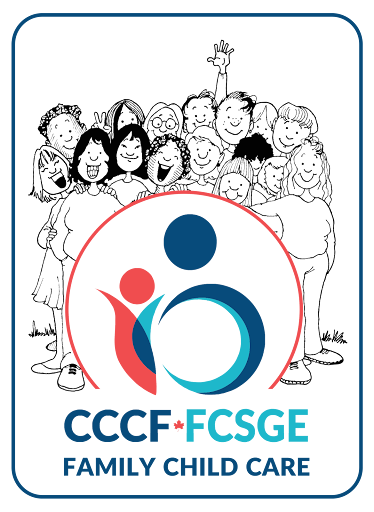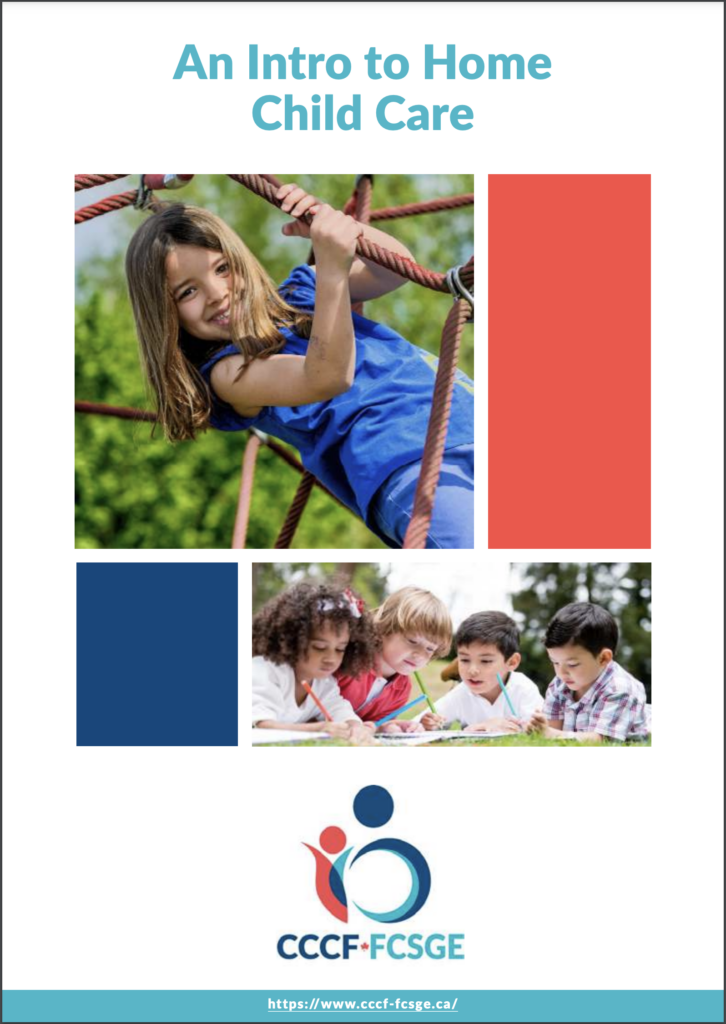The importance of a homelike atmosphere and child-centred activities are central to this care.
Family/Home Child Care
Family Child Care, also known as Home Child Care, can provide a nurturing and personalized option for families seeking safe, reliable, high-quality care for their children in a home-like setting. Its unique characteristics set it apart from other types of care.
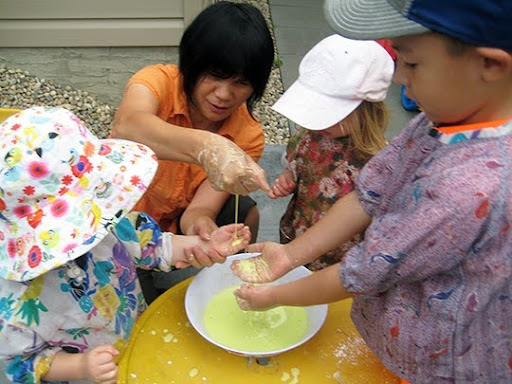
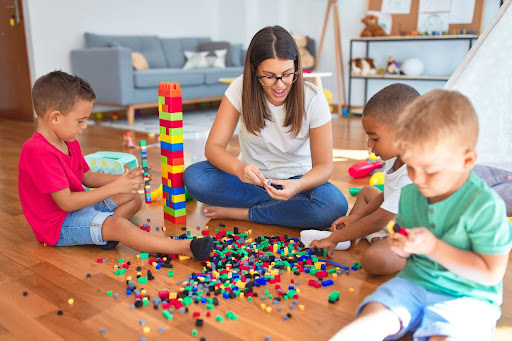
The unique characteristics of the physical environment in Family Child Care:
- Home setting in the provider’s home
- Neighbourhood/community involvement
- Consistent caregiver throughout the day
- Mixed-age groups offer unique opportunities for children
The unique characteristics of the physical environment in Family Child Care:
- Home setting in the provider’s home
- Neighbourhood/community involvement
- Consistent caregiver throughout the day
- Mixed-age groups offer unique opportunities for children
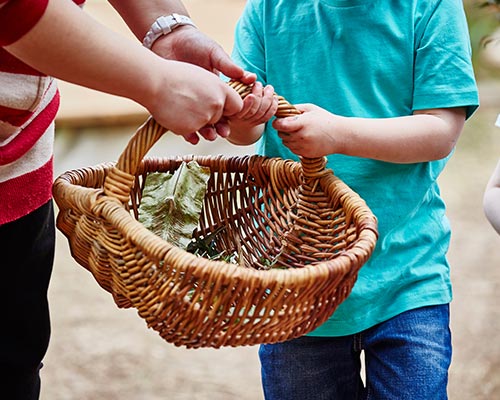
HOME CHILD CARE Articles
Schema Theory in Home Child Care
Schema theory is a valuable framework for understanding how children organize, interpret, and make sense of their world. It posits that children develop cognitive structures, or “schemas,” which are mental frameworks for categorizing and processing information. These schemas help children navigate their experiences, make predictions, and construct meaning. As family child care providers, grasping the
Promoting Your Home Child Care Business
Promoting your family child care business is essential to attracting new families and ensuring your long-term success. Building a positive reputation and word-of-mouth referrals are crucial for your business’s growth.
Creating Effective Contracts
A childcare contract is a vital document that establishes a clear agreement between family childcare providers and the families they serve. This written agreement outlines the terms and conditions of your childcare services, ensuring that both parties are in agreement and understand their respective responsibilities.
The Impact of Stress on Children
You play a crucial role in shaping the early experiences that impact a child’s well-being and development. Understanding the effects of stress, both healthy and unhealthy, is essential in providing the supportive environment needed for optimal brain development.
Recognizing and Responding to Signs of ChildAbuse and Neglect
In family child care settings, recognizing potential signs of child abuse or neglect is crucial for ensuring the well-being of the children under your care. It’s essential to approach this sensitive issue with caution, acknowledging the diversity in child-rearing philosophies and practices among families and cultures. Trust your instincts, but remain mindful of biases, and
Loose Parts
Loose parts in child care environments support physical growth, cognitive skills, and creativity, and enhance science and math concepts. They encourage active learning, critical thinking, collaboration, and relationships among children of diverse stages and interests. Loose parts are versatile, developmentally and age-inclusive, sustainable, and cost-effective, fitting seamlessly into various play environments. They empower children’s unlimited
Family Child Care Training Online
Introducing our 10 module, online course with a virtual community of practice and facilitator. It is intended for individuals who are currently or who are interested in becoming family child care providers in Canada. It’s an introduction for those new to the sector. Experienced providers will find the opportunity to review and reinforce their knowledge and the sharing of experiences with others, helpful and worthwhile.
Participants could include:
- Individual providers
- Networks of caregivers
- Home visitors, child care coordinators or others involved in supporting family child care work
- Agencies, associations and other child care and community organizations
- Community colleges and other educational services
For more information about the next opportunity to take the course, email fcc@cccf-fcsge.ca
Perspectives in Home Child Care
Home Child Care Resources
So you want to care for other people’s children in your home?
Download this free e-book to find out what’s involved and where to start.
- An Intro to Home Child Care (English)
- Isang Panimula sa Pangangalaga ng Bata sa Tahanan (Tagalog)
- ਹੋਮ ਚਾਈਲਡ ਕੇਅਰ ਦੀ ਜਾਣ-ਪਛਾਣ (Punjabi)
- Une introduction au service de garde à l’enfance (French)
- 家庭兒童托兒介紹 (Cantonese)


